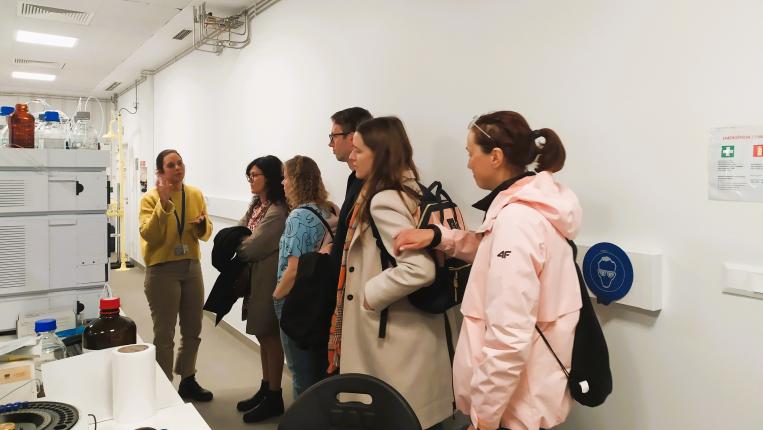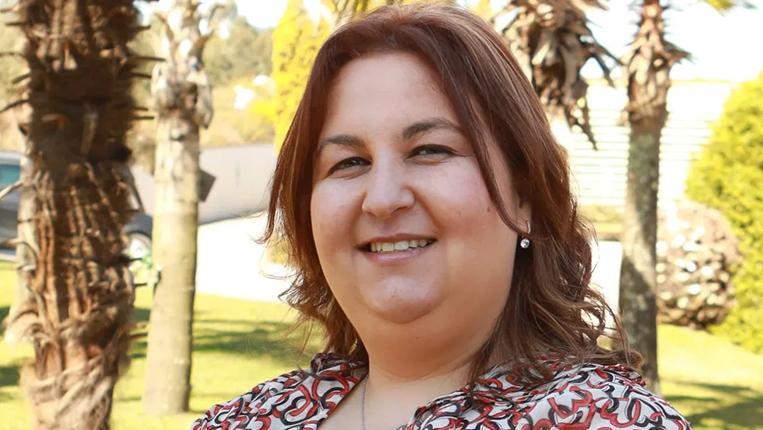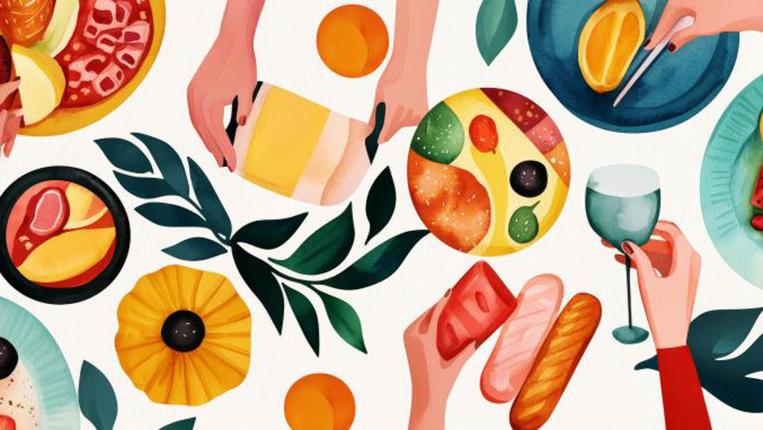
Rita Bacelar recently graduated with a degree in Nutritional Sciences from the Faculty of Biotechnology at the Universidade Católica Portuguesa in Porto. She was an active member of the Student Association and is currently the vice-president of the university's Female Tuna. Her final internship at Hospital de Santa Maria proved to be an invaluable experience, preparing her for the future ahead. In this interview, she shares her passion for improvising and creativity in the kitchen, along with her views on the importance of combating misinformation in the field of Nutritional Sciences.
You recently graduated in Nutritional Sciences. How would you describe your experience as a student at the Faculty of Biotechnology of the Universidade Católica Portuguesa in Porto?
I am incredibly proud to have completed my degree and to say that the Faculty of Biotechnology feels like home to me. The close relationship with professors and the vibrant academic life made my university experience truly exceptional. I wouldn’t change a thing; I take with me unforgettable memories and a strong sense of belonging.
Why did you choose to study Nutritional Sciences?
My interest in Nutritional Sciences began in high school, where I realized I wanted to work in healthcare and engage with people. Additionally, I have always been active and enjoy culinary experiences. This combination sparked my interest in Nutritional Sciences, and throughout my studies, I grew to identify with and fall in love with this field.
During your studies, you were actively involved in university life through the Female Tuna and the Student Association. What impact did these activities have on your personal development?
Engaging in extracurricular activities allowed me to develop soft skills, which are increasingly valued in the job market. I discovered abilities such as communication, adaptability, and perseverance through these groups. The Student Association provided opportunities to connect with students from various programs and years, while being part of the Female Tuna at the Universidade Católica Portuguesa in Porto has been particularly meaningful for me. It made the four years of my degree enjoyable, and I am proud to serve as Vice-President of this wonderful community. It allows me to meet students from other faculties and universities, share traditions, and learn about music in a fun and rewarding way.
You did an Erasmus exchange in Granada. How would you describe that experience?
Granada is a vibrant city that pushed me out of my comfort zone. I had the chance to live independently, practice another language, and immerse myself in a culture that was completely different from what I had always known. Despite the challenges of adapting to a new environment, it provided valuable insights into what many Portuguese people experience when moving abroad. Although it’s a Spanish city, it has a strong Arab influence that introduced me to stunning landscapes and enriching traditions. Overall, I feel fortunate to have had this experience.
How does Católica’s training prepare students for international environments and experiences?
The training provided by Católica offers a broader, borderless perspective of our field of study. The hands-on components of the program help us develop cooperation and adaptability skills, which are essential in multidisciplinary contexts.
Your internship at Hospital de Santa Maria marked the final stretch of your degree…
The training I received from ESB was crucial for my internship, which gave me a deeper understanding of what it means to be a Nutritionist. I had the opportunity to explore areas such as Collective Food and Catering, Clinical Nutrition, and Community Nutrition, all of which were incredibly enriching. I recognize that the path ahead will be challenging, but thanks to my internship, I feel more prepared to face it.
What is the biggest challenge Nutrition faces today?
Nutrition is becoming increasingly valued in our society, and I believe the next significant challenge is creating enough space for all professionals to make their contributions to enhancing the health of the Portuguese population across various nutritional areas. This also involves tackling the rapid spread of misinformation, which threatens public health and the credibility of professionals.
How can misinformation in this field be tackled?
Misinformation can be addressed by promoting the sharing of evidence-based content. Encouraging the habit of verifying information sources is crucial in preventing the adoption of harmful practices that can jeopardize public health. I believe one of the best ways to highlight the truth is through education and accessible information.
What advice would you give to someone about to start a degree in Nutritional Sciences?
Enjoy these years and make an effort to create lasting memories and connections. Take advantage of every learning opportunity and strive to absorb as much knowledge as possible, as this field is both comprehensive and fascinating. Stay curious, and don’t hesitate to ask for help from those around you; it will make your experience easier and more enjoyable.
Do you enjoy cooking?
I love trying new dishes and cooking without following a recipe. I believe that a nutritionist's passion for culinary experiences is a significant advantage, as it helps others develop a love for food through creative, practical, and nutritionally interesting recipes and cooking methods.
Pessoas em Destaque é uma rubrica de entrevistas da Universidade Católica Portuguesa, Centro Regional do Porto.



